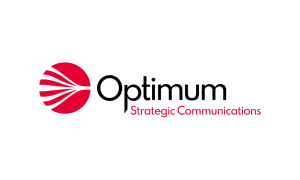Dan Mahony & Gareth Powell – Global healthcare investing: Can hindsight hone the crystal ball for the future? A fireside chat moderated by Amy Brown, Evaluate Vantage
Dan Mahony and Gareth Powell are long time, successful life sciences and healthcare investors. They are luminaries of the UK and European healthcare ecosystem, who have been investing since the late 1990s and initially worked together at Polar Capital where together they set up the biotech and healthcare investment funds. Gareth is still Head of Healthcare at Polar Capital, running about $4.5 billion of long-only funds, and Dan is Entrepreneur in Residence at Evotec, where he also recently “got back in the saddle”, looking after their corporate venture fund, as well as being Chairman of the BIA. At the Optimum Healthcare Conference, they talked over their learnings from several decades of investment and outlook with Amy Brown of Evaluate Vantage in a fireside chat.
Highlights:
Reasons for (cautious and patient) optimism:
- Whenever things are looking dreadful, economically and in the public stock markets, it has been (with hindsight) a great time to set up a biotech business and/or invest in biotech
- We’ve been in a bubble and bust before (e.g. 2000), especially in biotech. There is a way through eventually and the industry is more mature now than back then. Investors will still invest in a really difficult market. If you have a truly differentiated product then you can get funded wherever, it’s ultimately about the assets being developed. We’ll also start to see public investors come together to reach specific inflection points.
- In healthcare, the pace of innovation continues even amidst economic turmoil. There will be companies in 2-3 years with technology invented just last year. Unmet need hasn’t changed. There are still 3,300 plus diseases for which there is no cure.
- Everyone is so negative. Small and mid-cap is so cheap particularly in Europe. When inflation rolled over in the 1970s that was the start of a major bull market in small and mid-cap.
Learnings:
- Belgian buns and the tenacity to ride it through are a must have when times are tough!
- For healthcare investment, it is important to step back and identify on a 3–5-year view what makes companies perform, what are strong business models and seek anomalies in valuation, underestimated revenue growth and operating leverage. Investing in multiple subsectors of healthcare alongside biotech allows exposure to companies with different economic sensitivities.
- Valuation discipline is important, but it can lead to some “timing” mistakes, which are offset by serendipity. One has to be “in” the game though for that to come through.
- The best investments often feel slightly uncomfortable the next day – one knows in one’s stomach that risk has probably been taken in the right way.
What is of interest on the horizon?
- We’ve only seen the beginnings of cell therapy; RNA modulation and protein homeostasis will explode. There will also be a focus on different ways of going at drug targets e.g., PROTACs. ADCs are also a great example of a modality maturing and coming of age. All these areas are really cooking at a number of companies, big and small.
Advice to companies – Focus, focus, focus & differentiate:
- To weather a downturn, focus on how you communicate your use of resources. Decide on what you are going to do and then tell everyone what you’ll do. You can set the agenda on how you want to be measured and take some control of how the Company is rated. If you leave it to the market, they’ll measure you however they want.
- Companies need differentiation, particularly outside of oncology, de-risked, robust development programs that will yield proof-of-concept data and an obvious focus on execution.
- In the last two years, there were maybe 250 IPOs, and almost 98% of those were preclinical. That was highly unusual. Stay private until you’ve got decent proof-of-concept data.
- Investors are looking for a track record and a breadth of experience. In white spaces such as digital health, there is no playbook so you need a leader with a sense of how they’ll start generating revenue and making money. Europe needs a better concept of translational medicine – getting products to the clinic and end markets where there are big issues to solve.
- In the US, senior executives are on the road seeing investors so much, working hard to get investors ready for fund raises. In Europe, investors only ever seem to see management when they are ready to raise money, not in preparation. European life sciences has to compete for capital and get out there – it’s a global competition.
How long will the slump last? – Not quite out of the ashes yet but not far off
- If interest rates increases start to ease we’ll still need to go through an eps re-rating and macro headwinds will be a drag for quite some time, although once bargain-hunting picks up momentum IPOs will get away. A tentative timeline for recovery and re-opening of the IPO window was expected between “later in 2023 with a trough in Q1 2023” through to “a week or so after JP Morgan in Jan 2024”.
